Question about condensing gas water heaters
uscpsycho
6 years ago
Featured Answer
Sort by:Oldest
Comments (50)
uscpsycho
6 years agoRelated Discussions
Gas water heater installation question
Comments (20)"How does an electric dry pull a lot of air?" Mike: Of course there's a fan inside the dryer. All clothes dryers, electric or gas, pull a lot of air from the surrounding area, run it past the heater (gas or electric) to heat it, through the drum of wet clothes and out the dryer vent. Regarding the furnace: Anything other than very minor leaks in the return air system on a furnace (which are usually canceled out by minor leaks on supply plenum) are a problem. You can have back drafting of the furnace - far worse than back drafting of the water heater because it's more CO (more btu/hr input) and because that means it's pulling the CO into the return air and circulating it in the house. "I would not trust any contractor to know the local code especially where a mistake could cause a big safety issue"... umm ok. To begin with that's not really the issue - since as I said, the issue is that Lowe's WON'T do the job. But that's really an absurd statement because virtually every job, be it electric, HVAC, Plumbing or even many carpentry jobs depend on the contractor knowing code to do a safe installation. If we can't start with that assumption the building trades would come to a screeching halt. I'm not naive... I do know people make mistakes and/or are unqualified. But the people who do this for a living and have their work regularly inspected by local authorities and who's livelihood is dependent on being able to be licensed, bonded and insured are in a pretty good position to know local code. Besides, killing your customers is a big civil liability, potentially a criminal liability and really bad for business. It's far more likely that the average DIY installer would make a serious safety error. The OP is very aware of the makeup air issue. He's going to point that out to the contractor so it's not overlooked. As far as we know, this has been an acceptable situation up to this point with makeup air grills in the outside wall and floor. Nothing has significantly changed since the original design. A contractor is going to confirm the makeup air situation meets code and then install the heater. He may even inspect the current heater for evidence of backdraft. The real issue is a broad warning in the manufacture's installation instructions that, while is important to bring to installer's attention, is too broad. (again, how near is "near"? Is that 24"? is that in the same room? is that in the same dwelling unit?) Lowe's had no choice about following this prohibition because explicit manufacturers instructions are binding if not counter to local codes. If the instructions said not to install the heater in a room that was painted white, it would be just as binding....See MoreGas Hot Water Heater Questions
Comments (2)you beeter build it strong in that area, a full wh weighs a ton! well not quite a ton but it is heavy and with the small footprint exerts a large load. you will also want a pan udner it, imagine what would happen is the tank sprung a leak, gallons and gallons of water would flow befor you even knew it was leaking, this will ruin the ceiling and insulation. surely you don't mean you are going to put the main breaker panel in the attic? even though you don't have local codes restricting you, your insurance company can deny you coverage if you don't follow standard code practices, one of which is the panel must be readily accessible and visible....See MoreSolar hot water, tankless, gas condensing water heater...?
Comments (2)If you go with any sort of solar system, make sure it has a gas backup and not electric. My energy costs went up $100/month when I added our solar system down here in San Diego. I am now getting it corrected with the installation of a small gas tankless unit, using the solar storage system as a pre-heater. If you're building the home then many of the traditional drawbacks of tankless don't apply to you. You can build in the correct gas line and venting from the start. If I were in your shoes I'd probably go tankless (30 percent tax credit this year -- see the stimulus law or visit www.energystar.gov). If a single unit won't handle your demand then get two. And plumb it with the small tank system (10 gallon) for recirculation and to overcome any sandwich problems. This approach has been detailed in this forum somewhere....See MoreQuestions about hybrid electric water heaters + electric tankless
Comments (1)Electric tankless will require an upgrade as well ... on the electric circuit. A typical electric tank takes a 25 to 30 amp circuit. Electric tankless can be high as 120 amps depending on the needed capacity. Capacity in tankless terms means the heating power required to raise the desired rate of water flow (gallons per minute) from the starting point (lowest tap-water temp experienced during the winter season) to the desired output temperature (typically at least 120ðF for a kitchen with a dishwasher). If your house has a large-enough existing electric drop from the pole, then you'd only have to run a larger circuit from the breaker box. Otherwise you'd also have to upgrade the service drop from the pole....See MoreDavid Cary
6 years agouscpsycho
6 years agoJeffrey R. Grenz, General Contractor
6 years agouscpsycho
6 years agoJeffrey R. Grenz, General Contractor
6 years agouscpsycho
6 years agolast modified: 6 years agouscpsycho
6 years agolast modified: 6 years agoJeffrey R. Grenz, General Contractor
6 years agouscpsycho thanked Jeffrey R. Grenz, General Contractoruscpsycho
6 years agoUser
6 years agolast modified: 6 years agouscpsycho
6 years agoDavid Cary
6 years agouscpsycho
6 years agoUser
6 years agolast modified: 6 years agoSpringtime Builders
6 years agolast modified: 6 years agouscpsycho
6 years agolast modified: 6 years agoSpringtime Builders
6 years agolast modified: 6 years agouscpsycho
6 years agoSpringtime Builders
6 years agolast modified: 6 years agojln333
6 years agobry911
6 years agoSpringtime Builders
6 years agolast modified: 6 years agoJake The Wonderdog
6 years agoJake The Wonderdog
6 years agoSpringtime Builders
6 years agolast modified: 6 years agoJake The Wonderdog
6 years agolast modified: 6 years agoSpringtime Builders
6 years agolast modified: 6 years agoJake The Wonderdog
6 years agolast modified: 6 years agoSpringtime Builders
6 years agolast modified: 6 years agoJake The Wonderdog
6 years agoSpringtime Builders
6 years agolast modified: 6 years agoDavid Cary
6 years agoJake The Wonderdog
6 years agolast modified: 6 years agoSpringtime Builders
6 years agolast modified: 6 years agoJeffrey R. Grenz, General Contractor
6 years agoJake The Wonderdog
6 years agolast modified: 6 years agoDavid Cary
6 years agoSpringtime Builders
6 years agolast modified: 6 years agobry911
6 years agoDavid Cary
6 years agobry911
6 years agolast modified: 6 years agoJake The Wonderdog
6 years agoJeffrey R. Grenz, General Contractor
6 years agolast modified: 6 years agobry911
6 years agoSpringtime Builders
5 years agolast modified: 5 years ago
Related Stories

GREAT HOME PROJECTSHow to Switch to a Tankless Water Heater
New project for a new year: Swap your conventional heater for an energy-saving model — and don’t be fooled by misinformation
Full Story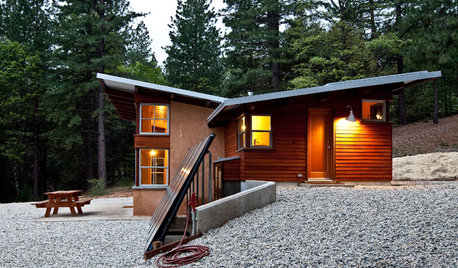
GREAT HOME PROJECTSHow to Add a Solar Water Heater
Lower energy bills without a major renovation by putting the sun to work heating your home’s water
Full Story
LANDSCAPE DESIGNPros Field Your Questions About Outdoor Lighting
Find out what to consider when illuminating your landscape for safety and ambiance
Full Story
REMODELING GUIDESConsidering a Fixer-Upper? 15 Questions to Ask First
Learn about the hidden costs and treasures of older homes to avoid budget surprises and accidentally tossing valuable features
Full Story
GREEN BUILDINGConsidering Concrete Floors? 3 Green-Minded Questions to Ask
Learn what’s in your concrete and about sustainability to make a healthy choice for your home and the earth
Full Story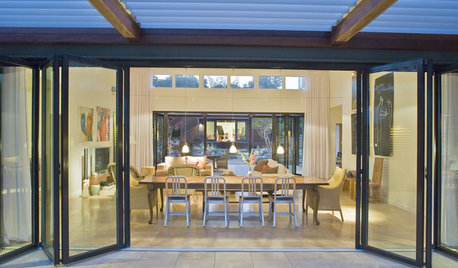
ARCHITECTURE10 Things to Know About Prefab Homes
Are prefab homes less costly, faster to build and greener than homes constructed onsite? Here are answers to those questions and more
Full Story
GREEN DECORATING8 Questions to Help You See Through Green Hype
With the ecofriendly bandwagon picking up some dubious passengers, here's how to tell truly green products and services from the imposters
Full Story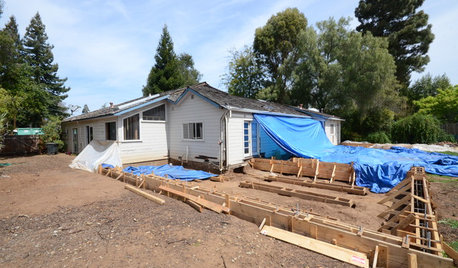
REMODELING GUIDESSurvive Your Home Remodel: 11 Must-Ask Questions
Plan ahead to keep minor hassles from turning into major headaches during an extensive renovation
Full Story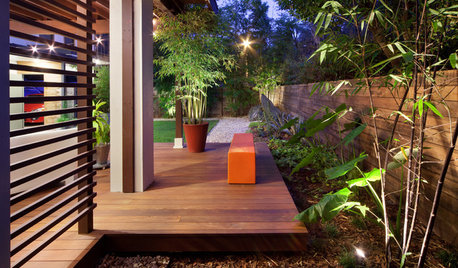
LIFEThe Top 5 Ways to Save Water at Home
Get on the fast track to preserving a valuable resource and saving money too with these smart, effective strategies
Full Story
KITCHEN DESIGN9 Questions to Ask Before You Plan Your New Kitchen
To get your dream kitchen, start with a strong mission and wish list, and consider where you’re willing to compromise
Full Story



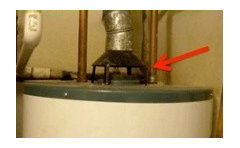

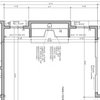
Springtime Builders